“The Buddha said to Ananda, ‘Sentient beings who are born in that Buddha land all reside among those assured of Nirvana. The reason is that in that land there are neither beings who are destined to adverse conditions nor those whose destinies are uncertain.
‘All Buddha Tathagatas in the ten directions, as numerous as the sands of the Ganges River, together praise the inconceivable, supernal virtue of Amitayus. All sentient beings who, having heard His Name, rejoice in faith, think of Him even once, and sincerely transfer the merit of virtuous practices to that land, aspiring to be born there, will attain birth and dwell in the stage
of non-retrogression. But excluded are those who have committed the five grave offenses and abused the Right Dharma.’”
The first paragraph refers to the 11th Vow of Amida and I already explained in detail how Shinran viewed the stage of being assured of Nirvana at the chapter dedicated to the 48 Vows.
According to him, we enter that stage which is also called the stage of the truly settled, definitely assured state, the stage of non-retrogression, etc, in the very moment we entrust to Amida Buddha in our present life and we attain Nirvana or Buddhahood/perfect Enlightenment immediately after being born in the Pure Land.
Thus, when we die and are born in the Pure Land we bring with us this state of being assured of Nirvana in which we’ve been already dwelling since we put our faith in Amida. This is how we should read this sentence through Shinran’s eyes, “sentient beings who are born in that Buddha-land all reside among those assured of Nirvana”. We are born in Sukhavati as beings already assured of Nirvana and we actually attain it in the very moment of our birth there.
Our karmic destiny has been fixed and certain since we first entrusted to Amida in this life, and we’ll become Nirvanic/Enlightened Persons when we make the first step in the Pure Land.
Nothing can disrupt the process of us becoming Buddhas in the Pure Land, just like ice put in a hot stove cannot stay frozen. This is how we should read the sentence, “in that land, there are neither beings who are destined to adverse conditions nor those whose destinies are uncertain”. All the layers of delusions and blind passions will melt away under the “intense heat” of Amida’s Pure Land. Those who enter this land through the Gate of the Primal Vow (Gate of Faith) will definitely attain Nirvana immediately after being born there, but even those who are in the special condition of the borderland of the Pure Land (we’ll talk about them later) cannot retrogress to samsara again, so they are too, in a way, sure of becoming Buddhas, even if not so soon like those who were born through the Gate of the Primal Vow.
All Buddhas in the ten directions praise the benefit of being born in the Pure Land of Amida because they know that is the best place to be reborn into due to its accessibility and easiness of attaining Nirvana there. Please pay attention here – “all Buddha Tathagatas in the ten directions, as numerous as the sands of the Ganges River, together praise the inconceivable, supernal virtue of Amitayus (Amida)”.
All Buddhas praise the inconceivable supernal virtue of Amida! They do not praise our virtues or merits, but the inconceivable supernal virtue of Amida! So, when we read the words, “sincerely transfer the merit of virtuous practices to that land” we should know that it is NOT in any way a reference to our unenlightened and limited merits and virtues, but to Amida’s infinite and supernal virtues which are transferred to us when we first entrust to Him. Thus, we should read the words, “sincerely transfer the merit of virtuous practices to that land, aspiring to be born there, will attain Birth” as Shinran did, which is something like, “through Amida’s sincere transference of His merits to us, we aspire to be born in His Pure Land and we’ll be born there”. Shinran always explained merit transference as something which is given by Amida, and NOT produced by the practitioner:
"When I humbly contemplate the true essence of the Pure Land Way (Jodo Shinshu), I realize that Amida’s merit transference has two aspects: one is the aspect of going forth (Oso-Eko), and the other that of returning (Genso-Eko)".[1]
The first refers to the fact that through Amida's transference of merit we go to His Pure Land where we become Buddhas (attain Nirvana/perfect Enlightenment), while the second one means that after we become Buddhas in the Pure Land by sharing the same Enlightenment as Amida, we return to the various samsaric realms and universes, in various forms of our choosing, to save all beings.
Shinran also said:
"The realization attained in the Pure Land way is the wondrous fruition attained through Amida’s perfect benefiting of others. It arises from the Vow of necessary attainment of Nirvana (11th Vow), also known as the ‘Vow of the realization of great Nirvana.’ It may further be called ‘the Vow of realization, which is Amida’s directing of virtue for our going forth.’ This realization is purity, reality, and no-birth (Nirvana), ultimate and consummate. [...]
When foolish beings possessed of all blind passions - the multitudes of beings caught in birth and death and defiled by evil karma - realize the mind and practice that Amida directs to them for their going forth [to the Pure Land], they come to dwell among the truly settled of the Mahayana teaching. Those who dwell among the truly settled necessarily attain Nirvana. [...] Hence, whether with regard to the cause or to its fruition, there is nothing whatever that has not been fulfilled through Amida Tathagata’s directing of virtue to beings out of the pure Vow-mind. Because the cause is pure, the fruit is also pure[2]. Reflect on this". [3]
So, what we actually do is to avail ourselves of the infinite merits offered to us by Amida when we first entrusted ourselves to Him and started saying the Nembutsu of faith, or as the sutra say when we “heard His Name, rejoice in faith, think of Him even once”.
Shinran explained the meaning of hearing the Name:
"'Hear the Name': is to hear the Name that embodies the Primal Vow. "Hear" means to hear the Primal Vow and be free of doubt. Further, it indicates shinjin".[4]
Also, Master T’an-luan explained:
“All beings, having heard Amida’s virtuous Name,
Attain joyful faith, rejoice in what they hear,
And call His Name even once. The person of sincerity, Amida,
Endows merit to them. All who aspire for Birth attain Birth.
Hence, I prostrate myself to worship Him and aspire to be
born there.'"[5]
As we can see from the above, to think to Amida is equivalent to saying His Name as one who says also thinks to what he says. “Even once” means that the number of thinking to Amida or saying His Name is not important as long as one has faith. This is in direct connection to the words of the Primal Vow – “saying my Name perhaps even ten times” which also stresses that the Nembutsu can be said anytime and in any number.
Coming back to the transference of merits - it would be stupid to actually think that we can reach the Enlightened realm of Amida and attain Buddhahood there with the limited merits and virtues produced by our unenlightened minds. This is exactly why the sutra mentions “the inconceivable, supernal virtue of Amitayus (Amida)”. This is also why all Buddhas praise the virtues of Amida, and NOT our so-called “virtues” which could be transferred to the Pure Land. The words “inconceivable, supernal virtue of Amitayus (Amida)” are the key to understand the second fragment of section 22.
So, by availing ourselves of the “inconceivable, supernal virtues” of Amida we reach His Pure Land carrying with us the stage of non-retrogression or being assured of Nirvana in which we have already entered when we first entrusted ourselves to His power, and once we arrive there (after death) we actually attain perfect Nirvana or Buddhahood. Shinran said:
"Those who attain true and real shinjin (faith)
Immediately join the truly settled;
Thus having entered the stage of non-retrogression,
They necessarily attain Nirvana"[6]
Immediately join the truly settled;
Thus having entered the stage of non-retrogression,
They necessarily attain Nirvana"[6]
In regard to the last sentence of this section, “excluded are those who have committed the five grave offenses and abused the Right Dharma”, I already explained the so-called “exclusion” related with the five grave offenses by offering the example of a mother who admonishes her children to stop them from behaving badly but never actually putting her “threats” into action, in the chapter dedicated to the Primal Vow, so please go there for a detailed explanation (click here to read). The real excluded or better said, self-excluded are only those who abused or slandered the right Dharma, which means denying the real existence of Amida Buddha and His Pure Land.
to be continued
[1] Kyogyoshinsho – On Teaching, Practice, Faith, and Enlightenment, translated by Hisao Inagaki, Numata Center for Buddhist Translation and Research, Kyoto, 2003, p. 5
[2] The passage "because the cause is pure, the fruit is also pure" reffers to the fact that the cause of our attainment of birth in the Pure Land and Nirvana is Amida Buddha. Because we are carried by the karmic Power of Amida we can reach His Pure Land. If the Pure Land was the effect of our own karma, then we could naturaly go there whenever we wish. But because it is Amida’s Enlightened realm, we can reach it only through Amida’s Power.
[3] Shinran Shonin, Passages on the Pure Land Way, The Collected Works of Shinran, Shin Buddhism Translation Series, Jodo Shinshu Hongwanji-ha, Kyoto, 1997, p.300-301
[4] Shinran Shonin, Notes on Once-calling and Many-calling, The Collected Works of Shinran, Shin Buddhism Translation Series, Jodo Shinshu Hongwanji-ha, Kyoto, 1997, p.474
[5] Hymns in Praise of Amida Buddha (Tsan a mi t’o fo chieh) [composed by Master T’an-luan], as quoted by Shinran in his Kyogyoshinsho – On Teaching, Practice, Faith, and Enlightenment III, translated by Hisao Inagaki, Numata Center for Buddhist Translation and Research, Kyoto, 2003, p. 88
[6] Shinran Shonin, Hymns of the Pure Land (Jodo Wasan), The Collected Works of Shinran, Shin Buddhism Translation Series, Jodo Shinshu Hongwanji-ha, Kyoto, 1997, p. 341

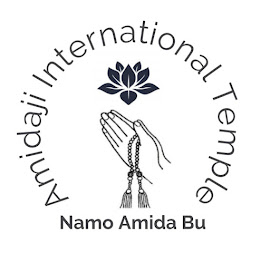



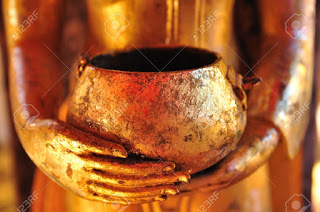



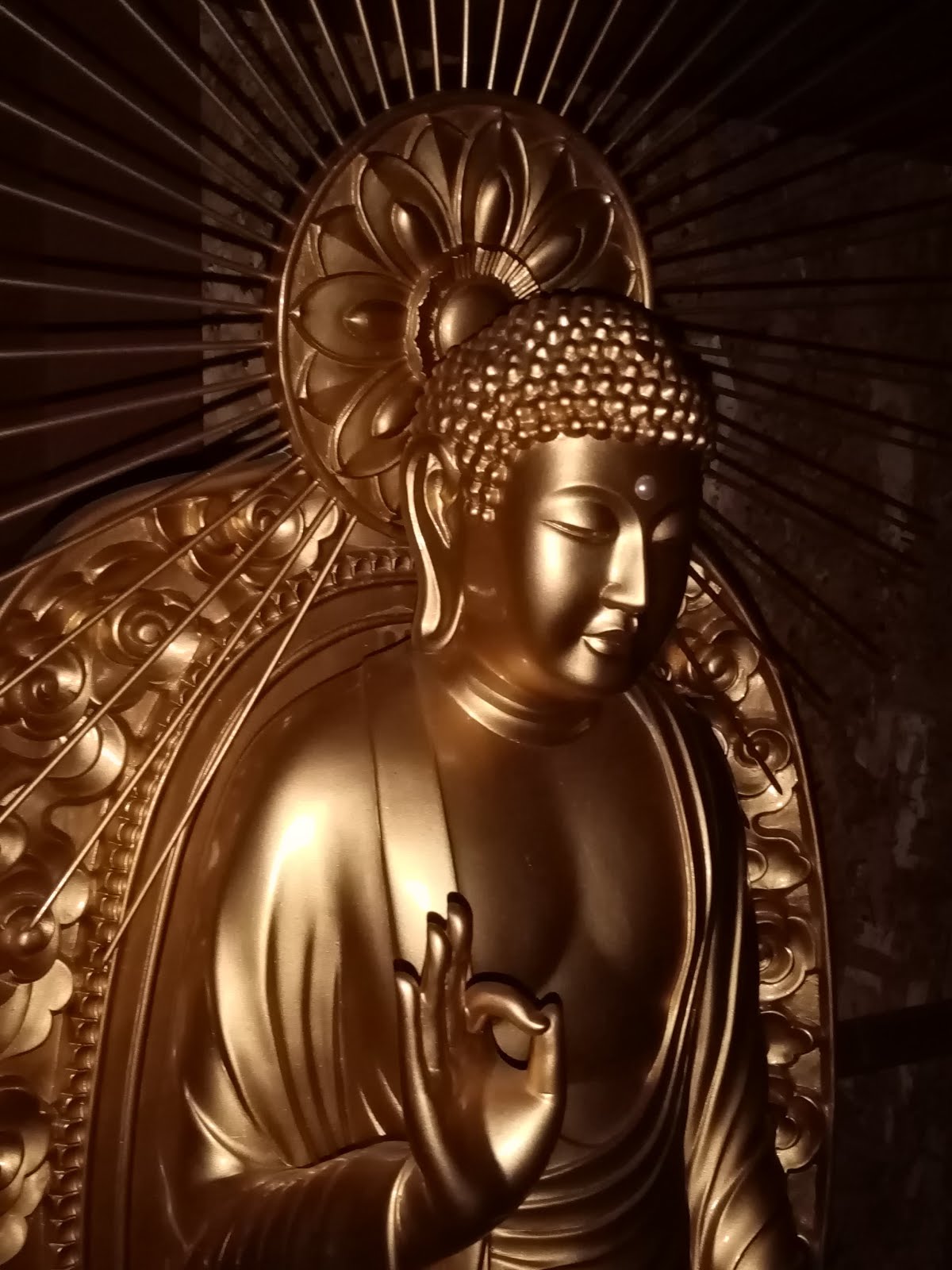










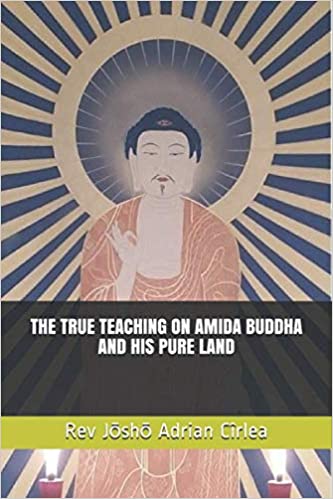

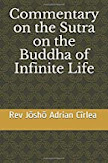



0 comentarii:
Post a Comment